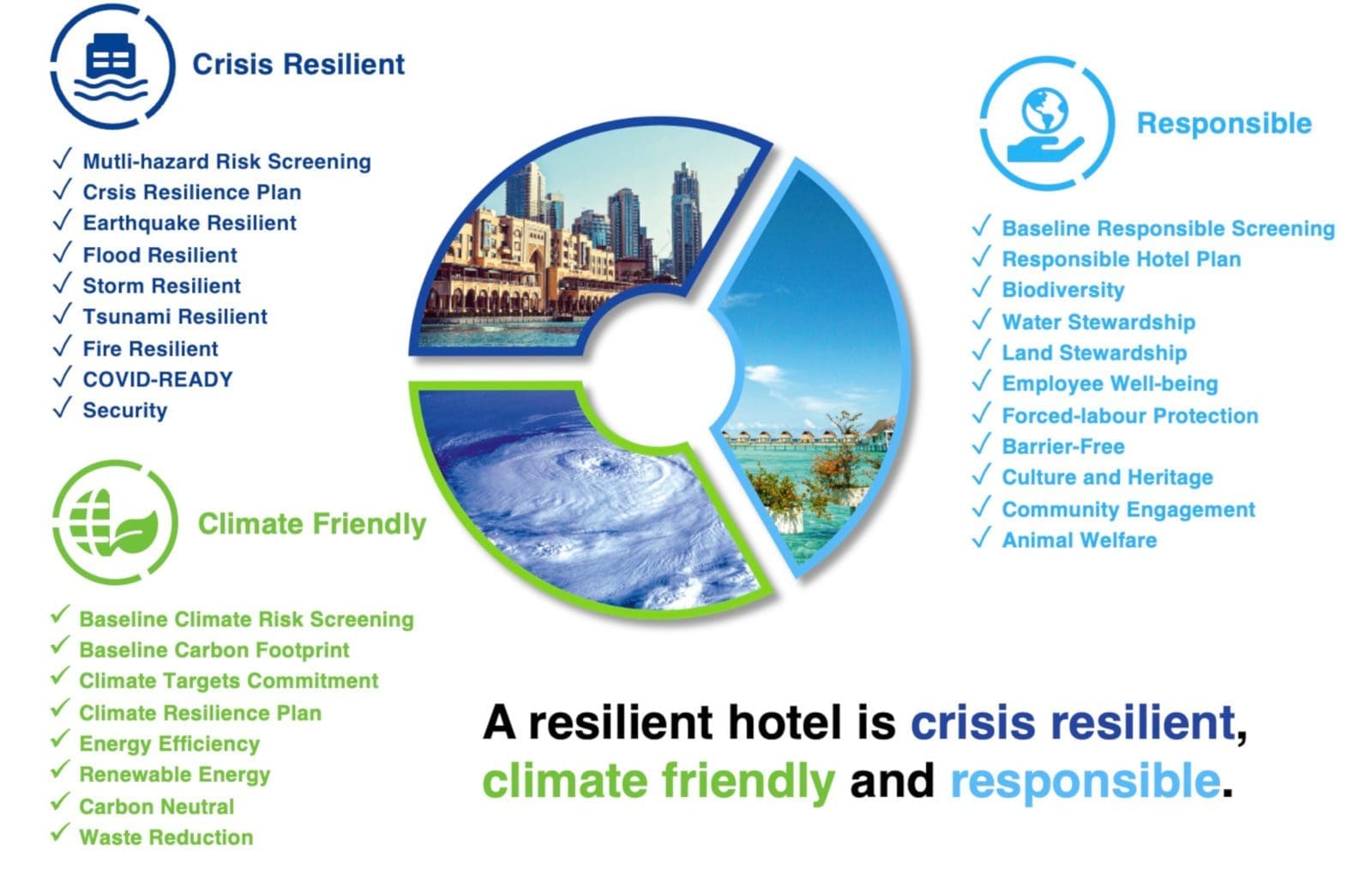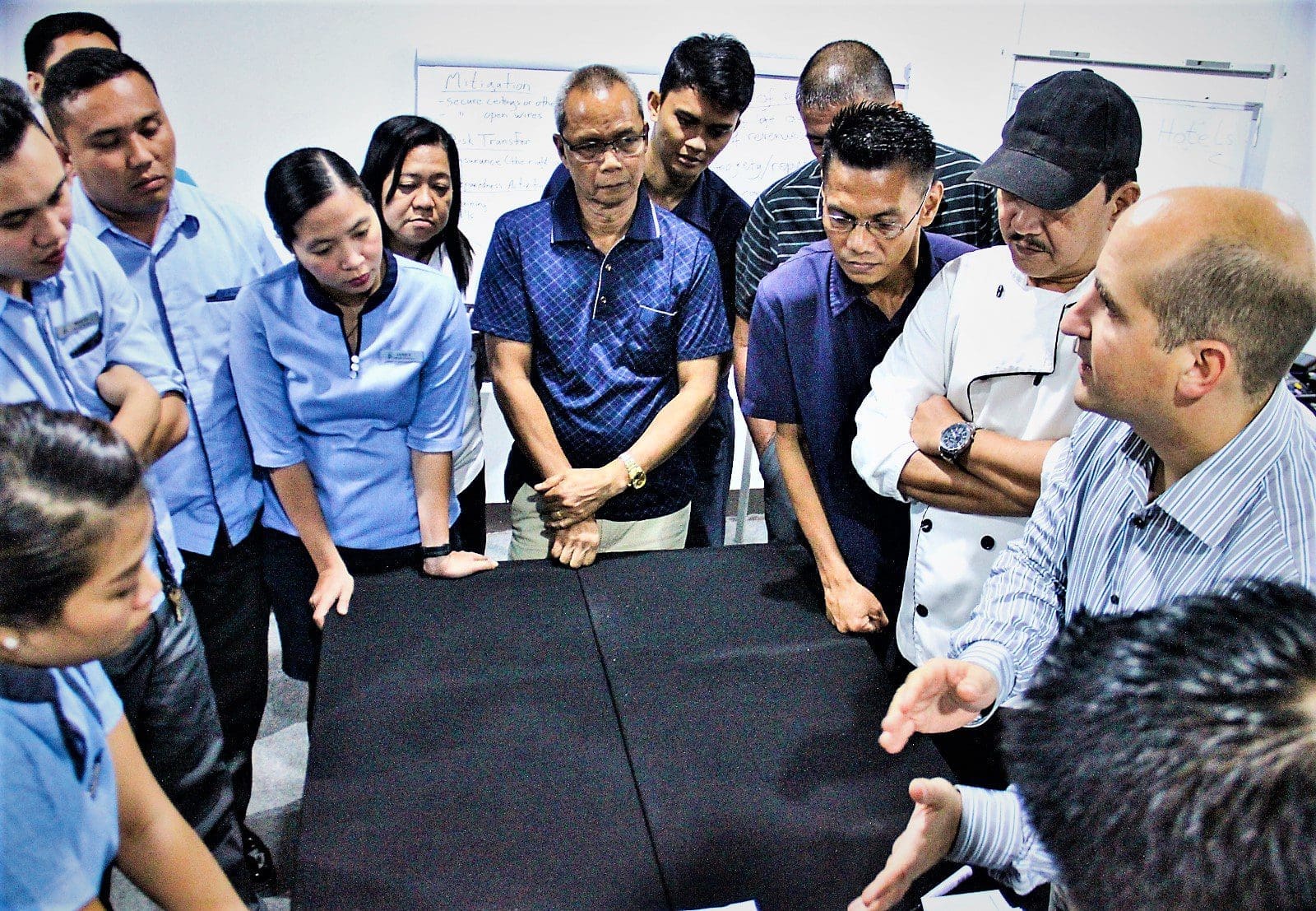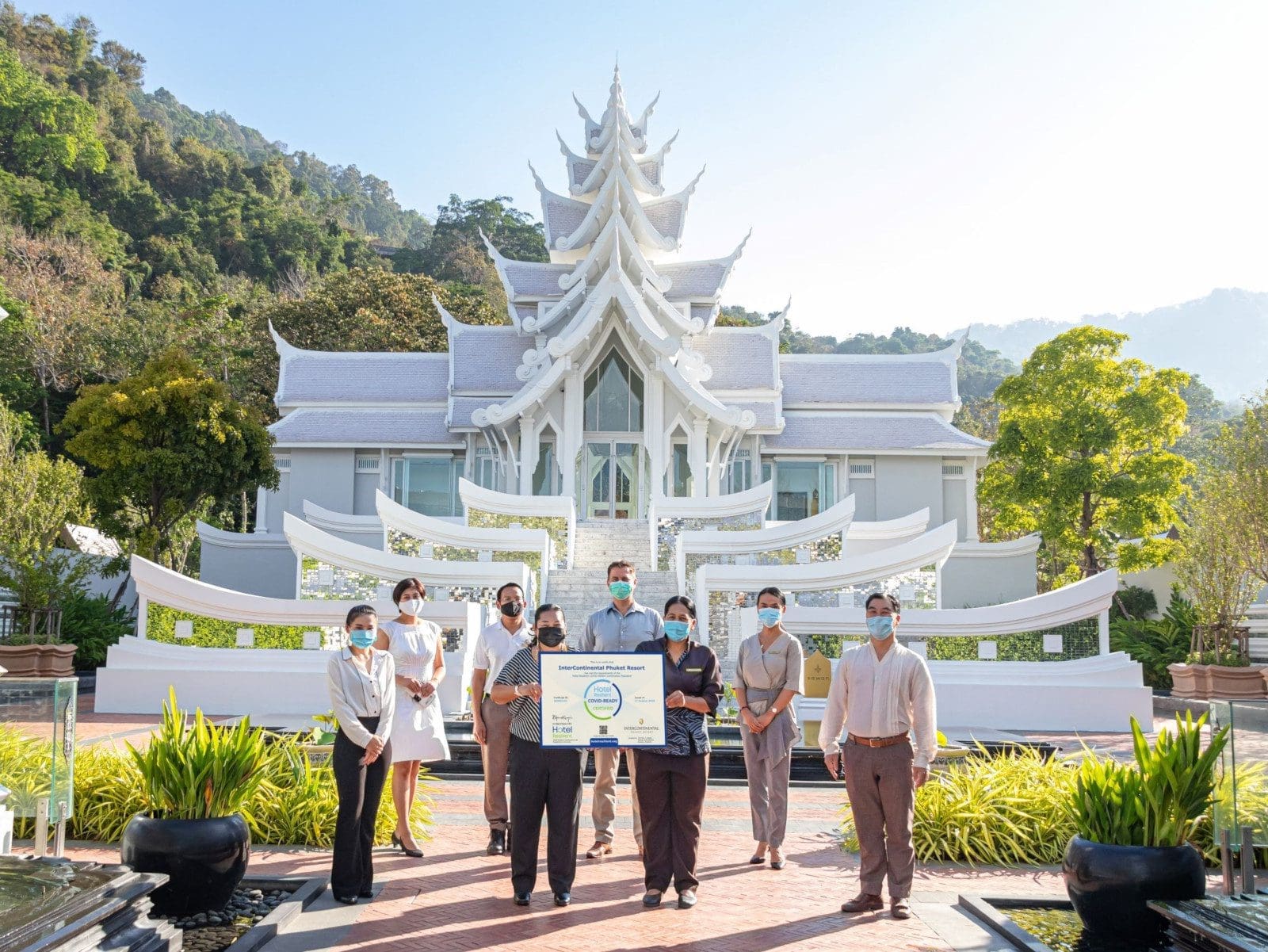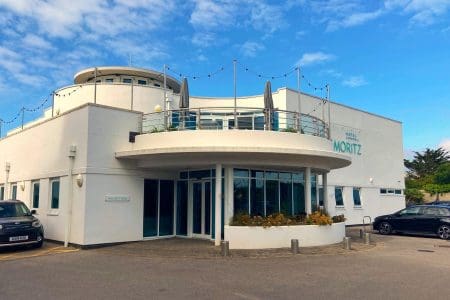Mark Bibby Jackson talks with Dr Bijan Khazai CEO of Hotel Resilient, and Risklayer, one of the many SUNx Malta SDG17 Partners providing Climate Friendly Travel support in areas such as disaster resilience, customer engagement, green promotion and carbon offsetting.
One of the many lessons taught by Covid is the precarious nature of businesses, especially those in the travel and tourism sector. Many have folded in the past two years, and many collapsed due to the amount of debt they have taken on just to survive. But, as we never tire of telling, Covid is not the only crisis in time. While many may feel a pandemic such as the current one is a once-in-a-lifetime experience, there can be little doubting the existential threat rapidly approaching us from climate change.
For many hotels, resorts and travel companies generally, the key question is how to future proof their organisation to mitigate against damage caused by the inevitable Climate Titanic iceberg. It could just be that Hotel Resilient is the solution you have been seeking.
Why Hotel Resilient?
Created under the Global Initiative on Disaster Risk Management, Hotel Resilient is a partner of the United Nations Office for Disaster Risk Reduction (UNDRR) Pacific Asia Travel Association (PATA), and German Cooperation and Development (GIZ).
Established in 2020, it “provides scientific metrics, hotel-specific guidance and software solutions to make the transformation to crisis resilience, climate neutral and responsible tourism a reality”.

Dr Bijan Khazai, tells me that they are “targeting a different market, hotels with a real existential climate threat, or that have their heart in the right place.”
This is a unique service. “There are no other platforms which provide climate risk audits specifically tailored to the accommodation sector,” he adds.
In addition to contributing to the future of the planet, making such an audit can also be sound sustainable business sense. Bijan explains that hotels and resorts are increasingly being requested to disclose their climate risk by both investors and insurers.
“They are looking at hotels being more transparent,” he says explaining the market drivers for hotels to disclose their risk, especially those needing to reschedule debt repayment plans as a consequence of Covid.
According to Bijan, there are two key questions behind Climate Friendly Travel mitigation – what is your impact on the climate? and what is climate’s impact on you? While trying to address both issues, Hotel Resilient provides predictive modelling and powerful risk analytics that take into account future climate scenarios and help hotels prioritise climate mitigation and adaptation strategies.
How Hotel Resilient Works
 One problem that many companies in the travel and tourism sector have is they do not know how to start – either in terms of disaster risk or carbon reduction. They need a leg up.
One problem that many companies in the travel and tourism sector have is they do not know how to start – either in terms of disaster risk or carbon reduction. They need a leg up.
Hotel Resilient provides this to the Climate Friendly Travel Community for free.
Initially, clients are requested to complete three assessments each of which should take less than an hour to complete, says Bijan. Using a combination of scientific metrics, through its parent company Risklayer, and qualitative assessment, Hotel Resilient then produces a baseline report of where you are now. This is accompanied by a gap analysis with suggestions upon where you might make improvements.
“This will give you a good idea of where you need to improve,” says Bijan. Companies can use this information to implement their own plans, and circulate the information within their organisation.
It is only when clients want verification from Hotel Resilient that there is a charge. Following that Hotel Resilient can undertake detailed audits for certification.
Currently Hotel Resilient has 350 users with 60 certificates, mainly their Covid Ready Certificate. Hotel Resilient, in collaboration with Exo Travel and Khiri Travel, also offers a Responsible Hotel Audit (based upon accepted Global Sustainable Tourism Council standards). The Climate Resilient audit is in its final stages of piloting, with Bijan confident it will be launched in March 2022.
Hotel Resilient and the Climate Friendly Travel Registry
Since March 2021 Bijan has been in dialogue with Professor Geoffrey Lipman at SUNx Malta to see how both organisations can develop a meaningful partnership to create added value for members of the SUNx Climate Friendly Travel Community.
Bijan believes there is far too much greenwashing in the industry at present, and there should be more partnerships such as the SDG17 agreement between SUNx Malta and themselves.
“You segment the market every time you bring in another label,” he says, adding that this makes the landscape could more complex for hotels and resort, and mystifying for travellers wishing to do the right thing.
Specifically, Hotel Resilient’s climate friendly audit will help companies complete Part B of the SUNx Climate Friendly Travel Registry and develop their carbon reduction action plans.
“Our focus is on small and medium sized operators, especially in island and developing states, who can benefit most from being part of the growing Climate Friendly Travel community,” says Professor Geoffrey Lipman of the SDG 17 partnership with Hotel Resilient. “By providing a suite of such services we can help companies and destinations develop better climate response and sustainability plans.”
More Sophisticated Clean and Green Market

The younger generation is more savvy about issues relating to sustainability, climate change and travel. To take just one example, future travellers will become increasingly sophisticated about how hotels link with the community.
“Younger travellers are more critical of what they see. They will want to see what is behind it,” he says. “They will want to see transparency – the QR code.”
Hotel Resilient is more than just a pretty label. It shows in detail the actual actions, from renewable energy to carbon reduction and waste management, that hotels implement. Hotel Resilient also provides guidance upon how you can improve your score, set tasks and provide recommendations for them to be completed, as well as supporting training content as complementary e-learning modules.
“You learn what are your strengths and where are your weaknesses,” says Bijan.
Currently, he is looking for more partnerships with destinations, DMCs and booking platforms, as well as individual resorts and hotels. According to a recent post-Covid study by Pacific Asian Travel Association (PATA), 60% of hotels do not have a crisis management plan. He believes that every hotel should have a crisis management plan and response strategy, and that this should be based upon established and industry-supported standards, and not produced on an ad hoc basis.
With the wind of COP26 behind it, 2021 was the year of pledging, Bijan gives me the double thumbs up sign when I suggested that 2022 should be the year of doing. By joining Hotel Resilient and the SUNx Climate Friendly Travel Registry you can start identifying your risks and implementing measures to mitigate them now. Not only does this confirm your commitment to staff, community, traveller and the planet, it also is attractive to both investor and insurer – two players that are key to post-covid tourism recovery. Now, isn’t that a great multiple-win scenario to kick off the New Year.
Article first published at SUNx Malta. Republished with permission.



